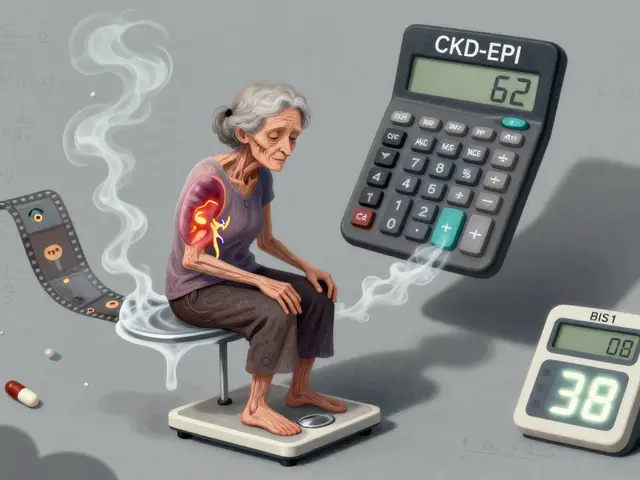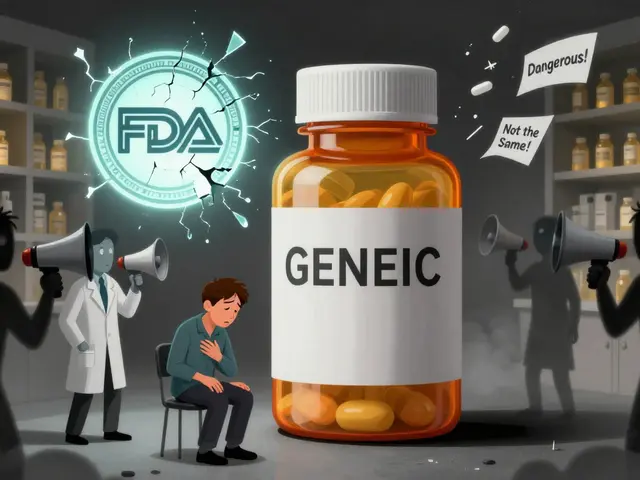Neuropathy treatment
Nerve pain can turn everyday tasks into a struggle. If you feel burning, tingling, numbness, or weakness in your hands or feet, there are practical treatments that can reduce pain and improve function. This page focuses on what actually helps, what to try at home, and when to see a specialist.
Neuropathy has many causes. Diabetes is the most common, but chemo drugs, vitamin B12 deficiency, alcohol use, infections, and certain autoimmune conditions can also damage nerves. Finding the cause matters because treating it can stop or slow further damage.
Medications often ease symptoms. Gabapentin and pregabalin are commonly prescribed for nerve pain; they calm overactive nerves and often help sleep. Duloxetine and amitriptyline are antidepressants that also reduce pain signals. Each drug has side effects — drowsiness, dizziness, dry mouth — so start low and work with your doctor to find the right dose.
Topical options are worth trying, especially for localized pain. Lidocaine patches numb the area for several hours. Capsaicin cream or high-concentration patches can reduce pain over weeks by lowering the nerve’s sensitivity. These options have fewer systemic side effects and are easy to try.
Some supplements can help when a clear deficiency is present. Vitamin B12 replacement is essential if levels are low. Alpha-lipoic acid has shown benefit in some studies for diabetic neuropathy and may reduce burning and numbness. Always discuss supplements with your clinician to avoid interactions.
Physical therapies improve strength, balance, and pain coping. A physical therapist can teach exercises to reduce falls and improve walking. Low-impact activities like swimming or cycling keep blood flow to nerves without stressing joints. Nerve-stimulating devices such as TENS may provide temporary relief for some people.
Lifestyle changes matter long-term. Good blood sugar control is crucial for diabetic neuropathy. Quit smoking and cut back on alcohol — both harm small blood vessels that feed nerves. Wearing comfortable, well-fitting shoes and checking feet daily can prevent ulcers and infections.
When to see a specialist: if you get sudden weakness, loss of bladder or bowel control, rapidly worsening symptoms, or open sores on your feet, seek care right away. A neurologist may order nerve conduction studies, EMG, or blood tests to pinpoint the cause. In some cases, targeted treatments like steroid injections, immune therapies, or surgical decompression are options.
Practical tips to try now: keep a symptom diary to track what helps or hurts, use heat or cold packs for short-term relief, protect numb areas from burns or cuts, and keep a medication list to review with your doctor. Small changes add up.
If cost or access is a concern, ask your doctor about generic options, patient assistance programs, or local physical therapy groups. Many clinics offer sliding scale fees. Keep copies of test results and medication lists so every new provider can help faster.
A tailored plan that combines medication, therapy, and lifestyle often gives the best results. Work with your healthcare team, ask questions, and push for adjustments until your daily life feels better.
Low-Dose Naltrexone: The Gabapentin Alternative for Neuropathy & Chronic Pain in 2025
Low-dose naltrexone (LDN) is catching eyes as a gabapentin alternative for neuropathy and chronic pain. This article breaks down pilot trial findings, practical prescribing tips, dosage details, and safety notes. It also explores how LDN measures up to longtime favorites like gabapentin and what real patients and doctors are saying in 2025. Dig into what really works, minus all the hype, to get helpful insights for anyone considering new options for nerve pain relief.






